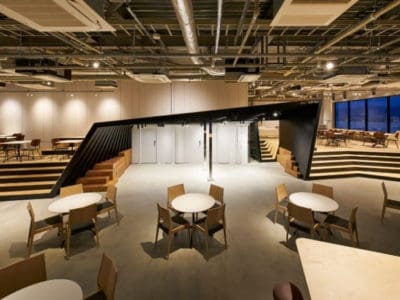
ESR co-founder Jeffrey Shen has scored another investment in the fast-growing firm
Asian logistics developer ESR has picked up more funding on its path to a planned IPO, announcing it has closed an investment from a private equity fund of CLSA, a subsidiary of Chinese state-owned investment bank CITIC.
The funding from the CITIC Securities One-Belt-One-Road (“CSOBOR”) Fund will be used to further ESR’s “rapid platform expansion” both in China and across the Asia Pacific region, the company said in a statement, without disclosing the amount of the investment. The developer formerly known as E-Shang Redwood currently has over 10 million square metres of projects owned and under development in China, Japan, Singapore, South Korea and India.
The statement also mentions plans to expand ESR’s business into Southeast Asia, and refers to the funding as “pre-IPO investment” without elaborating on the company’s plans for a potential listing. A representative of ESR declined to comment about the size of the funding or the IPO plans when contacted by Mingtiandi.
The news comes after Hong Kong-based ESR announced more than $2.5 billion in funding and investment deals last month.
Belt and Road Fund Bets on Sheds
“CLSA anticipates significant growth in the logistics infrastructure market and we believe ESR’s business model, tenant qualities and market position ensure it will be a leader in this sector,” commented Rui Zhao, managing director of CSOBOR Fund in the statement. “CLSA’s investment and resources will assist the company to expand its business into Southeast Asia and identity fund-level investors in China.”
CLSA, a Hong Kong-based capital markets and investment group, is part of the international platform of CITIC, China’s largest investment bank by revenue. The CSOBOR fund is designed to capitalise on investment opportunities related to China’s multi-trillion-dollar Eurasian trade and infrastructure strategy, originally dubbed One Belt, One Road.
The vehicle targets investments in the infrastructure, consumer products and services, tech, media, and telecom sectors. CITIC’s banking division first unveiled the Belt and Road fund in 2015, as part of the state-owned conglomerate’s plan to invest more than $112 billion to support the government initiative.
Funding to Boost $12B Logistics Portfolio

ESR’s Japanese platform includes a distribution centre complete with a lounge in Fujidera, near Osaka
ESR was created in 2016 by the merger of Chinese logistics developer e-Shang — backed by US private equity firm Warburg Pincus — and Japan-focused warehouse builder Redwood Group. The company has drawn on further backing by global investors including APG, CPPIB, and Goldman Sachs, to build a portfolio of $12 billion of assets under management in Asia.
The warehouse builder is already active in Southeast Asia where it bought an 80 percent stake in the manager of Singaporean industrial REIT Cambridge Industrial Trust in January 2017. Later renamed ESR-REIT, the real estate investment trust is poised to merge with Singapore’s Viva Industrial Trust (VIT), under a proposed deal unveiled in May.
“The investment from CLSA’s CSOBOR Fund into ESR is a tremendous endorsement of our capabilities and success, as well as the growth prospects of the logistics real estate market in the region,” noted Jeffrey Shen and Stuart Gibson, co-chief executives of ESR, in the statement. “The funding will help ESR to strengthen our market-leading position and accelerate the growth of our pan-Asia platform.”
Fast-Growing ESR Bags More Capital
The news comes as ESR moves aggressively to secure funding and scale up its warehouse portfolio across Asia. Last month, ESR closed on a $306 billion investment from Chinese e-commerce giant JD.com, which sources told Mingtiandi will primarily be used to drive the development of new facilities in China.
One day after the announcement of that deal, ESR joined with an arm of Hong Kong-listed Beijing Properties to set up an offshore fund designed to purchase logistics projects worth RMB 6.4 billion ($1 billion) from the mainland developer.
Also in May, ESR announced the final close of a Japan logistics fund with total equity of $1.2 billion including discretionary commitments and co-investment vehicles, as it aims for a logistics platform in the country that exceeds $5 billion in value over the next two years.
Leave a Reply